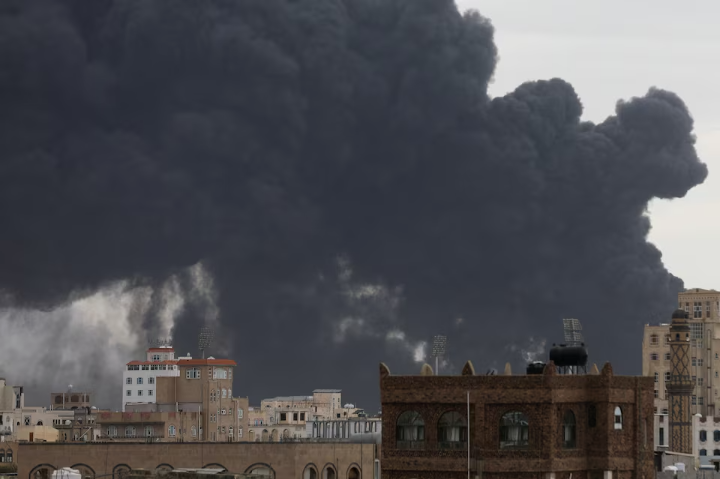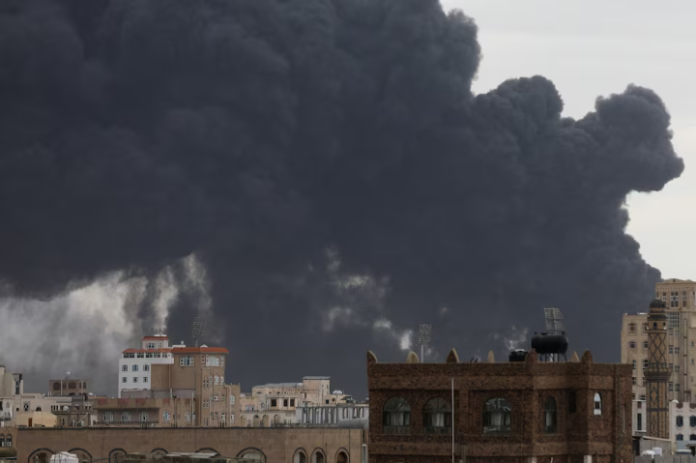Tensions in the Middle East have sharply escalated as Israel launched a powerful airstrike on Sanaa International Airport, Yemen’s main aviation hub, in response to a recent missile fired by the Houthi rebels that landed near Israel’s Ben Gurion Airport.
The Tuesday strike marks the second Israeli assault on Houthi-controlled targets in Yemen within 48 hours. According to Houthi-run Al-Masirah TV, three people were killed in the attack. Eyewitnesses reported seeing four explosions in the Yemeni capital shortly after Israel issued a public warning for civilians to evacuate the airport area.
The Israeli military announced that its fighter jets “dismantled Houthi terrorist infrastructure” and completely disabled the Sanaa airport. The military added that the airport had served as a central hub for moving weapons and operatives for the Houthi forces, which are aligned with Iran.
Three airport officials told Reuters that the Israeli missiles hit civilian airplanes, the main departures terminal, the runway, and a military air base operated by the Houthis. Yemen’s national airline, Yemenia Airways, confirmed that three of its aircraft were destroyed.
This latest airstrike follows a Houthi missile attack on Sunday that landed alarmingly close to Ben Gurion Airport, prompting major disruptions, including the cancellation of international flights by several European and U.S. airlines. Israel responded swiftly by bombing Houthi targets near the Yemeni port city of Hodeidah on Monday, where at least four people were killed and 39 others injured, according to Houthi health authorities.
The Houthis, backed by Iran, have been launching attacks on Israeli targets and commercial ships in the Red Sea ever since Israel began its military offensive in Gaza last October in response to a deadly Hamas-led attack. The Houthis argue that their operations are a show of solidarity with Palestinians and have vowed to continue until the blockade on Gaza is lifted.

In a statement via Al-Masirah, the Houthis warned that their armed operations will persist: “Yemen’s support for Palestine will not end until the aggression and siege on Gaza stops.”
United Nations Special Envoy to Yemen, Hans Grundberg, expressed concern about the situation, calling the latest attacks a “grave escalation in an already fragile and volatile region.”
The Houthis are part of Iran’s so-called “Axis of Resistance,” which includes other militant groups such as Hamas in Gaza and Hezbollah in Lebanon. Despite Israeli efforts to weaken these factions through airstrikes and targeted assassinations, the Houthis continue to pose a significant threat with their strategic missile capabilities and territorial control. They currently govern about 60% of Yemen, having withstood years of intense conflict during the nation’s brutal civil war.
As tensions mount, the international community watches closely, fearing that the ongoing tit-for-tat strikes could spiral into a broader regional conflict.



